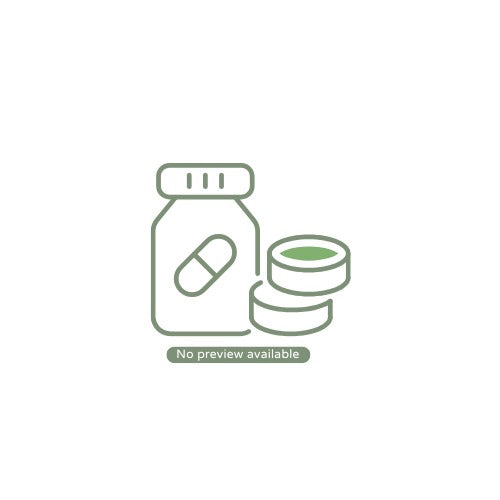VANCOMYCIN (Vancomycin)
Reliable shipping
Flexible returns

Vancomycin is an essential antibiotic used primarily in the treatment of severe bacterial infections. It is particularly effective against Gram-positive bacteria, including methicillin-resistant Staphylococcus aureus (MRSA), making it a critical option in the fight against antibiotic-resistant infections.
This medication is often administered intravenously for serious infections, while oral formulations are typically used for specific gastrointestinal conditions like Clostridium difficile infections. Vancomycin works by inhibiting bacterial cell wall synthesis, ultimately leading to cell death.
Patients receiving vancomycin require careful monitoring of blood levels to avoid toxicity, particularly nephrotoxicity and ototoxicity. Common side effects may include nausea, vomiting, and flushing, often referred to as "red man syndrome" when infused too rapidly.
It is important for patients to inform their healthcare provider of any existing kidney issues or allergies before starting treatment. Vancomycin is a crucial drug in modern medicine, particularly in hospital settings, where its use can be life-saving in managing resistant infections.
- Effective against Gram-positive bacteria, especially MRSA.
- Routes of administration include intravenous and oral forms.
- Requires monitoring of blood levels for safety.
- Potential side effects include nausea, vomiting, and red man syndrome.
- Critical for treating serious infections in hospitalized patients.
- Vancomycin hydrochloride
- Sodium chloride
- Water for injection
Vancomycin is an antibiotic used to treat serious infections caused by certain bacteria. It is typically administered intravenously or orally, depending on the type and severity of the infection. Follow these detailed instructions to ensure proper use of Vancomycin.
Before starting treatment, inform your healthcare provider about any allergies, particularly to Vancomycin or other antibiotics. Discuss your medical history, especially if you have kidney problems, hearing issues, or gastrointestinal diseases.
For intravenous (IV) administration:
- Your healthcare provider will determine the appropriate dosage based on your condition and body weight.
- Vancomycin will be given through an IV line. Ensure that the line is properly placed and functioning.
- Monitor for any signs of an allergic reaction, such as rash, itching, or difficulty breathing during and after the infusion.
- Stay hydrated by drinking fluids, as this can help protect your kidneys during treatment.
For oral administration:
- Take Vancomycin exactly as prescribed by your healthcare provider. Do not change the dosage without consulting them.
- It is usually taken every 6 to 8 hours, and it is important to complete the full course of treatment, even if symptoms improve.
- Swallow the capsules whole with a full glass of water. Do not crush or chew the capsules.
- If you miss a dose, take it as soon as you remember, unless it is almost time for the next dose. In that case, skip the missed dose and resume your regular schedule.
During treatment, your healthcare provider may conduct blood tests to monitor your kidney function and the levels of Vancomycin in your system. It is crucial to attend all scheduled appointments and follow your provider's instructions closely.
Be aware of potential side effects, including nausea, vomiting, diarrhea, and abdominal pain. If you experience severe side effects, such as signs of kidney problems (e.g., changes in urination), hearing loss, or severe allergic reactions, seek medical attention immediately.
Always store Vancomycin at room temperature, away from light and moisture. Keep it out of reach of children and never share your medication with others.
By adhering to these guidelines and maintaining open communication with your healthcare provider, you can help ensure the effective and safe use of Vancomycin for your treatment.